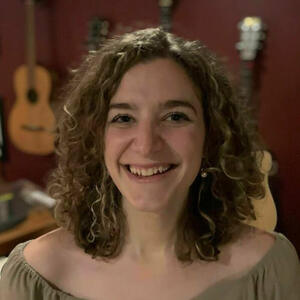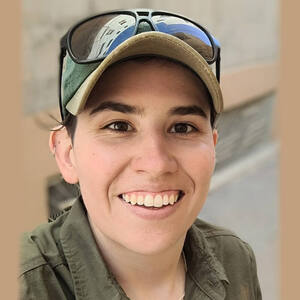Postdocs

Sarah Dennis
Sarah (Hoegler) Dennis received her PhD in developmental science, with a concentration in advanced quantitative methods, from the University of Notre Dame. She is a developmental psychologist whose research focuses on the mechanisms through which family relationships impact children’s development, as well as the role of exposure to stressors such as violence and trauma. Her prior work has focused on translational efforts toward designing, implementing, and evaluating preventive interventions for at-risk families, including an emphasis on supporting marital and father-child relationships. One of her main research interests is in understanding both the unique characteristics of fathers and the interactive effects of fathers and mothers and their parenting. She is also interested in how the characteristics and effects of fathering change over development and across cultures. Toward understanding cross-cultural differences, she has helped develop a mixed methods study examining family and community security in youth in San Pedro Sula, Honduras. Sarah has served as data analyst on this project, which additionally focuses on the impacts of community and gang violence on youth development. She is especially interested in the ways that family relationships may buffer children from the effects of contexts of violence. To this end, her research has further expanded toward understanding positive developmental outcomes in youth exposed to sectarian violence and political tension in Belfast, with a particular focus on the role of father presence and youth religiosity. In this work, she hopes to identify youth- and family-level protective factors that can be leveraged in future interventions with violence-exposed youth. She has continued to broaden the cultural contexts of her research, collaborating with the Norwegian Institute of Public Health to explore the effects of divorce on fathers and the father-child relationship. She also consults on a mixed methods research project examining the experiences of stigmatized ethnic and religious minorities in Istanbul, Turkey. Sarah loves to cultivate experience and expertise in advanced quantitative data analyses, which has resulted in collaborations with quantitative psychology faculty and graduate students on projects involving Dynamic Structural Equation Modeling, Mixture Modeling, and other approaches.
As a postdoctoral researcher at Notre Dame, Sarah continues to pursue her interests in understanding the protective effects of parents on their children’s development, particularly in stressful and high-risk contexts, by working with Dr. Lee Gettler on a collaborative project with the Beacon NICU. This project focuses on examining the experiences of families and their babies, focusing on parental mental well-being, social support, and physiology. She likewise has continued to examine the father-child relationship across cultural contexts by working with Dr. Gettler on data from a multi-generational study of fathers from Cebu City, Philippines. Additionally, Sarah is investigating the effects of the marital relationship and interactive effects of fathers and mothers through collaboration with both Dr. Gettler and Dr. Mark Cummings; this strand of work particularly focuses on the role of fathers’ and mothers’ autonomy supportive parenting in youth emotion regulation and well-being. Sarah also continues to pursue her methodological interests through collaboration with scholars from the Lucy Family Institute for Data Science.

Natalia M. Handziuk
Natalia M. Handziuk is an anthropological archaeologist who primarily works in the southern Levant. Her research focuses on understanding how early small-scale urban societies navigated coming together and building community during the initial centuries of urban coalescence. Her thesis, Olive oil and Urban Beginnings: A perspective from Early Bronze Age northern Jordan explored innovation in agricultural processing that resulted in increasing yields, which were necessary for provisioning growing communities during the Early Bronze IB period (3300-3050 BCE). Her postdoctoral research continues to investigate socio-political and economic developments in the Early Bronze Age Southern Levant (3300-2000 BCE) through mortuary contexts. By analyzing multiple charnel houses on the Dead Sea Plain, Jordan, she explores mortuary practices as a forum for navigating socio-political relationships in emergent urban arrangements. She particularly focuses on how practices evolved overtime, concomitant with local and regional socio-political developments.
Handziuk specializes in analyzing architecture, agricultural features, spatial patterning of materials and refuse, as well as ceramic production and use. She has extensive experience analyzing ceramic composition, technology and use wear; archival data and documents; as well as conducting experimental archaeology and fieldwork. As part of the Gadachrili Gora Regional Archaeology Project (GRAPE) in the Republic of Georgia she conducts ceramic experiments – recreating neolithic and chalcolithic technologies to teach material analysis skills (ceramic analysis) and anthropological theory (chaîne opératoire, Communities of Practice, Entanglement) to undergraduate and graduate students.
Since 2012, her fieldwork has included projects in Greece, Mongolia, Georgia, and Jordan. She has conducted research in Jordan for over a decade, analyzing collections, conducting excavations and surveys on Neolithic through Hellenistic sites, with a focus on the Early Bronze Age. She has worked with the Tell Madaba Archaeological Project, Khirbat al-Mukhayyat Archaeological Project, Wadi Ziqlāb Archaeological Project, Wadi Quseayba Archaeological Project, excavations at Khirbat Um al-Ghozlan, The Archaeological Expedition to Khirbat Iskandar and Its Environs, and The Expedition to the Dead Sea Plain.